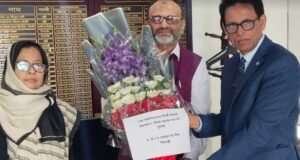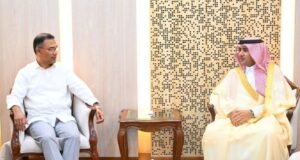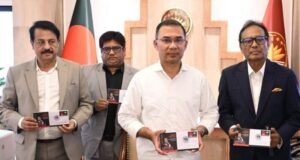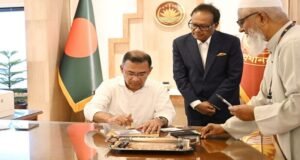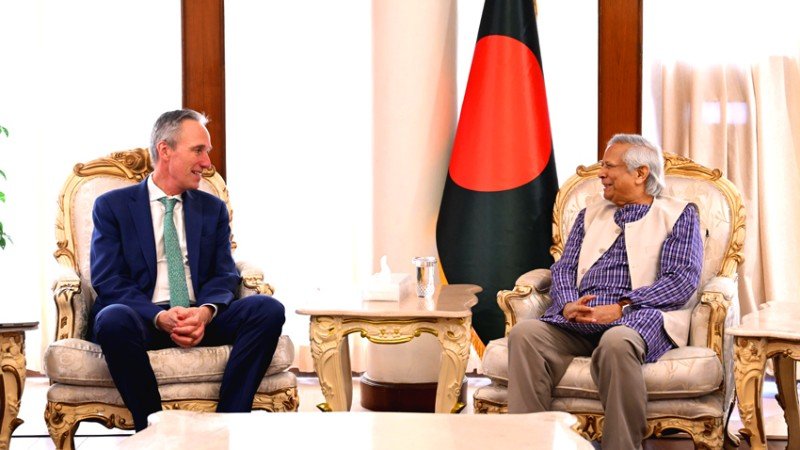
World Bank Vice President Martin Raiser has reiterated the global financial institution’s commitment to supporting Bangladesh’s Interim Government in implementing key reforms.
Raiser made this pledge during a meeting with Bangladesh’s Chief Adviser, Professor Muhammad Yunus, at the State Guest House Jamuna in Dhaka on Tuesday.
During their discussion, they addressed various areas of mutual interest, focusing on the World Bank’s financial support for major reforms in transparency, governance, and digitalization, particularly in tax administration.
“The World Bank is assisting Bangladesh in implementing urgent reforms aimed at improving transparency and governance, especially in tax policy and administration, public procurement, and statistical data collection,” said Raiser.
He emphasized that these reforms are crucial for Bangladesh’s democratic transition, future governance, and inclusive economic growth. Strengthening institutional integrity, he noted, would boost confidence among both citizens and businesses.
Raiser also highlighted the need to separate tax administration from tax policy to enhance transparency and governance in the revenue system. He stressed that tax exemptions should be determined solely by parliament.
Chief Adviser Professor Yunus briefed Raiser on the establishment of a consensus commission to facilitate dialogue with political parties regarding the recommendations made by six major commissions.
“Once political parties reach a consensus on the proposed reforms, they will sign a July Charter, which will first be implemented by the Interim Government and later by the elected government,” Yunus explained.
Raiser further underscored the importance of improving public procurement systems and ensuring the independence of the Bangladesh Bureau of Statistics (BBS) to enhance the quality of data for effective policymaking.
The discussion also covered Bangladesh’s digitalization efforts, particularly the National Identification (NID) system. Raiser assured that the World Bank could assist Bangladesh in connecting with countries that have advanced digital identification infrastructures.
 Weekly Bangla Mirror | Bangla Mirror, Bangladeshi news in UK, bangla mirror news
Weekly Bangla Mirror | Bangla Mirror, Bangladeshi news in UK, bangla mirror news


